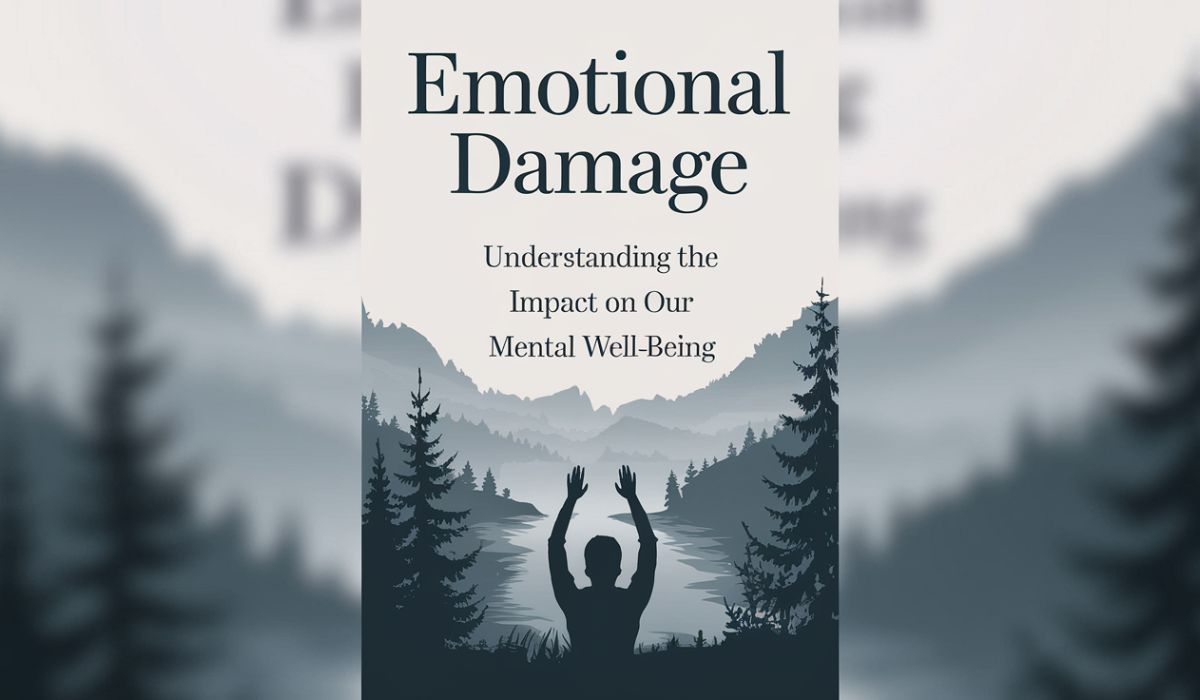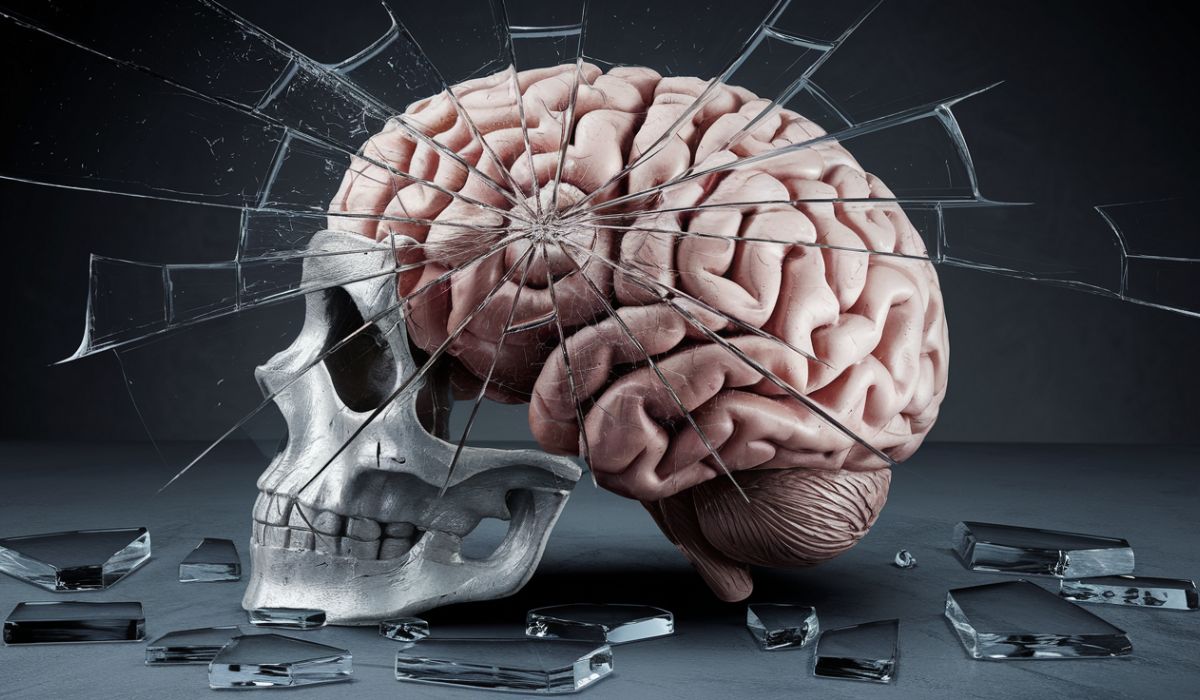We all go through tough times in life. Sometimes, these experiences leave us physically hurt, but other times, the wounds are emotional. Emotional damage refers to the deep, lingering effects that negative experiences can have on our emotional and mental health. Whether it’s from a toxic relationship, a painful breakup, a traumatic event, or even something subtle like constant criticism, emotional damage can affect how we see ourselves and interact with the world.
So, what exactly is emotional damage, how does it affect us, and most importantly, how can we heal from it? This article will take you through a journey to understand emotional damage, its causes, signs, and ways to begin the healing process.
What is Emotional Damage?

Emotional damage refers to the psychological harm that occurs when a person is exposed to negative, painful, or distressing situations. These situations can vary widely—anything from childhood trauma, toxic relationships, bullying, or the stress of daily life can contribute.
Think of emotional damage like a crack in a beautiful vase. The crack might not be visible at first, but it compromises the structure, making it more vulnerable to future harm. In a similar way, emotional damage may not always show on the surface, but it can weaken your ability to cope with stress and negatively affect your relationships and overall well-being.
How Does Emotional Damage Manifest?
Emotional damage doesn’t always look the same in every person. For some, it may present as sadness or anxiety, while for others, it might appear as anger, frustration, or a feeling of numbness. Emotional damage can lead to long-term emotional scars that, if left unaddressed, may deepen and affect various areas of life.
A person who has experienced emotional damage may feel emotionally distant, struggle with trust, or avoid situations that remind them of the pain. These responses are all ways our minds attempt to protect us, but they often prevent us from living fully and healing from past hurts.
Common Causes of Emotional Damage
Several experiences in life can cause emotional damage, and they vary in severity and impact. Some of the most common causes include:
- Toxic Relationships: Whether it’s with a partner, friend, or family member, relationships marked by manipulation, emotional abuse, or neglect can cause significant emotional harm.
- Bullying or Harassment: Experiencing bullying in school, at work, or online can leave deep emotional scars that affect one’s sense of self-worth and confidence.
- Loss of a Loved One: The death of someone close to you or the end of an important relationship can trigger grief and emotional pain.
- Childhood Trauma: Experiences such as neglect, abandonment, or abuse during childhood can have lasting effects on mental health throughout life.
Each of these situations can create emotional damage that takes time and effort to heal.
The Effects of Emotional Damage on Your Mind

When we talk about emotional damage, it’s essential to consider the lasting impact it has on the mind. Emotional damage can affect the way we process emotions and how we view the world. It can cause anxiety, depression, or even post-traumatic stress disorder (PTSD). It’s like being in a storm: the aftermath can leave you feeling lost, overwhelmed, or unsure of where to go next.
The mind can become fixated on negative thoughts or events, leading to emotional distress. Over time, these emotions can prevent us from moving forward, causing us to get stuck in a cycle of sadness or self-doubt.
Signs You Might Be Experiencing Emotional Damage
If you’re wondering whether emotional damage is affecting you, look for the following signs:
- Feeling numb or disconnected: Emotional damage can make you feel detached from others, as though you’re watching life happen instead of participating.
- Frequent mood swings: One moment you might feel fine, and the next, you’re overwhelmed with sadness or anger.
- Avoiding certain situations: You may avoid people, places, or events that trigger painful memories.
- Difficulty trusting others: Emotional damage can make it hard to open up or trust people, even those who are close to you.
Recognizing these signs early is a crucial first step toward healing.
Emotional Damage in Relationships
In relationships, emotional damage often arises from toxic dynamics. Whether it’s a partner who belittles you or a friend who constantly takes advantage of your kindness, these negative experiences can leave scars. Over time, emotional abuse can erode your self-esteem and make you doubt your worth.
It’s important to recognize these harmful patterns and address them before they cause irreparable damage. Sometimes, the most empowering thing you can do is step away from unhealthy relationships in order to protect your mental well-being.
How Emotional Damage Impacts Your Self-Esteem
One of the biggest impacts of emotional damage is on self-esteem. When you’ve been hurt repeatedly or made to feel worthless, it can be difficult to believe in your value. You might constantly second-guess yourself or feel inadequate.
Imagine a plant that hasn’t been watered or cared for properly. Over time, it starts to wilt and lose its vibrancy. In a similar way, emotional damage can stifle your sense of self-worth, causing you to question your abilities, talents, and worth as a person.
The Connection Between Emotional Damage and Mental Health
Emotional damage is closely linked to mental health issues like anxiety, depression, and PTSD. If left unaddressed, it can affect your daily life, making even simple tasks feel overwhelming. Emotional damage doesn’t just hurt emotionally; it can affect your physical health too, contributing to things like insomnia, headaches, or digestive problems.
The mind-body connection is real, and unresolved emotional damage can manifest in many ways, both mentally and physically.
Coping Mechanisms for Emotional Damage
While emotional damage can feel overwhelming, there are healthy ways to cope. Some coping mechanisms include:
- Journaling: Writing about your thoughts and emotions can help you process your feelings.
- Exercise: Physical activity can help release pent-up emotions and improve your mood.
- Talking to a trusted friend or therapist: Sharing your pain with someone you trust can provide relief and validation.
It’s important to remember that coping mechanisms are just temporary tools; healing requires more than just managing emotions—it requires confronting and working through them.
Healing Emotional Damage: Steps to Take
Healing emotional damage is a gradual process, but it is possible. Here are a few steps to begin your healing journey:
- Acknowledge the Pain: Accept that you’ve been hurt and that your feelings are valid.
- Seek Professional Help: Therapy can be an invaluable resource for working through emotional damage.
- Practice Self-Compassion: Be kind to yourself during the healing process, understanding that healing takes time.
- Build Healthy Relationships: Surround yourself with people who respect and support you.
Seeking Professional Help for Emotional Damage
If you’re struggling to heal from emotional damage, seeking professional help is a smart choice. A licensed therapist or counselor can guide you through the healing process, providing strategies and support tailored to your needs. Therapy can help you explore the root causes of your emotional pain and offer tools to help you regain emotional balance.
How Long Does It Take to Heal from Emotional Damage?
Healing from emotional damage doesn’t happen overnight. Depending on the severity of the damage, it could take weeks, months, or even years. The key is to stay committed to the process, knowing that every small step you take brings you closer to emotional recovery.
Preventing Emotional Damage in the Future
While we can’t prevent every painful experience, there are ways to protect yourself from future emotional harm. Set healthy boundaries, practice self-care, and ensure you’re in relationships that nurture your mental well-being.
The Power of Self-Compassion in Healing
Self-compassion is a powerful tool for healing emotional damage. Treat yourself with the same kindness and understanding that you would offer a loved one. By practicing self-compassion, you can begin to rebuild your emotional strength and move forward.
Conclusion: Overcoming Emotional Damage
Emotional damage can leave deep scars, but with time, effort, and support, it’s possible to heal. By acknowledging the damage, seeking help, and practicing self-compassion, you can take steps toward reclaiming your mental well-being and living a fulfilled life.
FAQs
What is emotional damage?
Emotional damage refers to the psychological harm caused by negative or traumatic experiences that affect a person’s mental and emotional well-being.
How can I recognize emotional damage?
Emotional damage often shows up as sadness, anxiety, mood swings, trust issues, or avoiding certain situations that remind you of the pain.
Can emotional damage affect my physical health?
Yes, emotional damage can lead to physical symptoms like insomnia, headaches, or digestive problems due to the mind-body connection.
How can I start healing emotional damage?
Start by acknowledging the pain, seeking professional help, practicing self-compassion, and surrounding yourself with supportive people.
How long does it take to heal from emotional damage?
Healing from emotional damage is a process that takes time, and the duration varies depending on the severity of the damage and individual circumstances.
for more visit: rankshort
